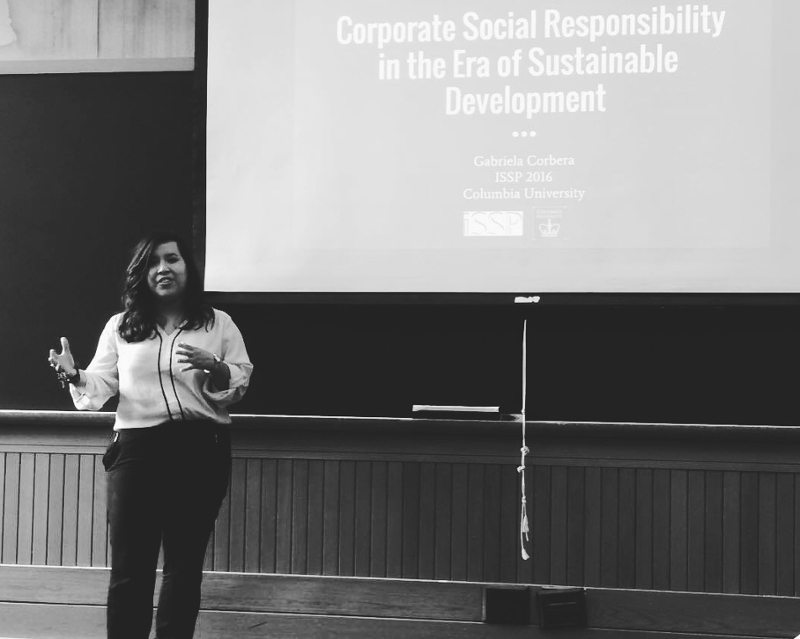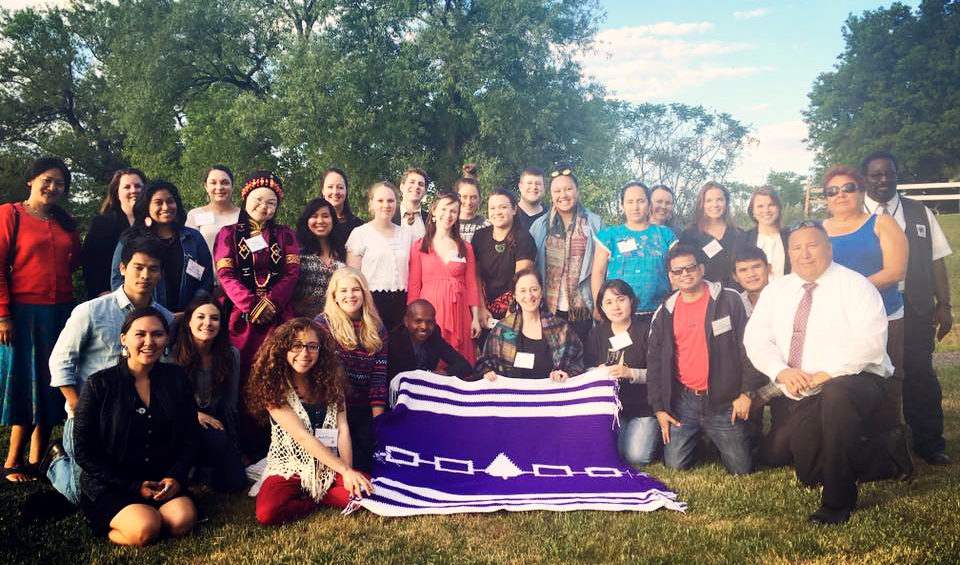This summer Gabriela Corbera, a master’s student in the sustainable international development program, participated in the Indigenous Studies Summer Program (ISSP) Fellowship at Columbia University. This prestigious summer program provides an overview and analysis of major questions in indigenous affairs, the adoption of the UN Declaration on the Rights of Indigenous Peoples, and the interaction between the indigenous movement and intergovernmental systems. Corbera spoke with Heller Communications about her experience and offers great advice for future participants.

Heller Communications: What attracted you to this program?
Gabriela Corbera: The ISSP Fellowship at Columbia University was immediately captivating to me. I was doing personal research on indigenous communities and development when I stumbled upon a posting from Columbia University on a summer program that would train advanced development professionals, policy makers, lawyers, and public servants to strengthening their capacities and to address indigenous issues across various pillars and issues of development.
As a practitioner who looks at things from a holistic point of view, the program intrigued me. My particular interest was its focus on international law and development policy, a realm that is often overlooked in indigenous studies.
I was also very excited that I’d have the opportunity to be in another space, meet indigenous practitioners and more deeply engage in these topics. As most folks in this field might agree, indigenous rights and development is often an “add-on” in development programs and isn’t usually fully integrated into the curricula. I knew this would be the right fit for me this year.
HC: What information can you share with future participants that you wish you had known in advance?
GC: I guess my biggest form of advice or local knowledge coming back from Columbia would be two things: self-determination and having an open mind to new forms of knowledge. In terms of self-determination: the program at Columbia is not free. There is a fee, and I received partial scholarships from both Columbia and Heller. I share this because as graduate students and practitioners, it’s important to take advantage of opportunities that are going to enhance our passion and commitment in the field. Often, people get discouraged by fees. This was a very important program for me, and I knew it was worth it. I was grateful for the scholarships I received from both Columbia and my own university.
Regarding open mindedness: as someone who is very academically oriented and data-driven, I often learn well from traditional academic lectures. If you do this program, be open to different forms of knowledge. When I reflect on what motivates or inspires my interest in indigenous communities, it’s not the books or the lectures, but the people, the communities and their traditional knowledge. I kept an open mind at Columbia and that helped me learn the stories of other fellows, the lecturers and of course the movement itself.

HC: How did your experience interact with what you've learned in the classroom?
GC: The knowledge I obtained at Columbia really complimented what I have learned at Heller, specially regarding interventions and people-based approaches to development. Coming from Heller, it was not hard to fit into this program or to think about the livelihoods and traditional knowledge of indigenous peoples as sacred and something of great value for the next era. There was also a major social justice angle that stems out of the movements that led to the Indigenous and Tribal Peoples Convention of 1989
(also known as ILO Convention 169) and the Declaration of Rights for Indigenous Peoples in 2007. This Fellowship motivated me greatly to include international law in all of my work and to not be intimidated by digging into these articles and forming my own interpretations.
HC: Has it changed your perspective on international development or your future career prospects?
GC: I wouldn’t say it changed my perspective all that much, I think the right term is enhanced. For as long as I can remember I’ve always believed in sustainable development. Heller has been a launching pad to delve deeper into this work, and the ISSP program strengthened my motivation to integrate sustainability and indigenous knowledge into international development. Meeting other practitioners and policymakers who have the same motivation was the best part of the journey. Again, for me, indigenous rights has never been an add-on. It’s part of the entire development process, and if it isn’t, then we are not achieving true sustainable development.
